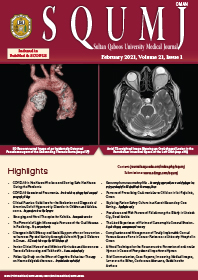Main Article Content
Abstract
Objectives: Patients with chronic kidney disease (CKD) undergoing haemodialysis often experience a myriad of psychosocial problems, resulting in poor adherence to their therapeutic regimen. This study aimed to examine the effect of cognitive behaviour therapy (CBT) on dialysis, fluid, drug and diet adherence among a previously reported sample of CKD patients undergoing haemodialysis. Methods: A randomised controlled trial was conducted between January 2013 to Febrary 2014 on a random selection of 67 CKD patients attending a tertiary multispecialty hospital in India. The experimental group (n = 33) was exposed to CBT, whereas the control group (n = 34) received non-directive counselling. A haemodialysis adherence scale was developed and used to assess adherence to the treatment regimen. The effect size was calculated using Cohen’s d statistics. Results: At six months, mean reductions from baseline were observed in the experimental group in terms of interdialytic weight gain (−1.23 kg; effect size: 0.57), systolic blood pressure (−22.18 mmHg; effect size: 0.71) and diastolic blood pressure (−10.06 mmHg; effect size: 0.72), whereas mean increases were noted in haemoglobin (+0.75 g/dL; effect size: 0.31) and adherence to dialysis (+0.94; effect size: 0.51), fluids (+16.34; effect size: 2.30), diet (+61.19; effect size: 4.75) and drugs (+10.73; effect size: 1.3). Differences from baseline were significantly higher in the experimental group compared to the control group (P = 0.001 each). Conclusion: These results show that CBT is more effective than non-directive counselling for improving therapeutic adherence and physiological, clinical parameters among CKD patients undergoing haemodialysis.
KEYWORDS
Chronic Kidney Disease; Hemodialysis; Patient Adherence; Cognitive Behavior Therapy; Hemoglobin; Weight Gain; Blood Pressure; Randomized Controlled Trial.
Article Details

This work is licensed under a Creative Commons Attribution-NoDerivatives 4.0 International License.
